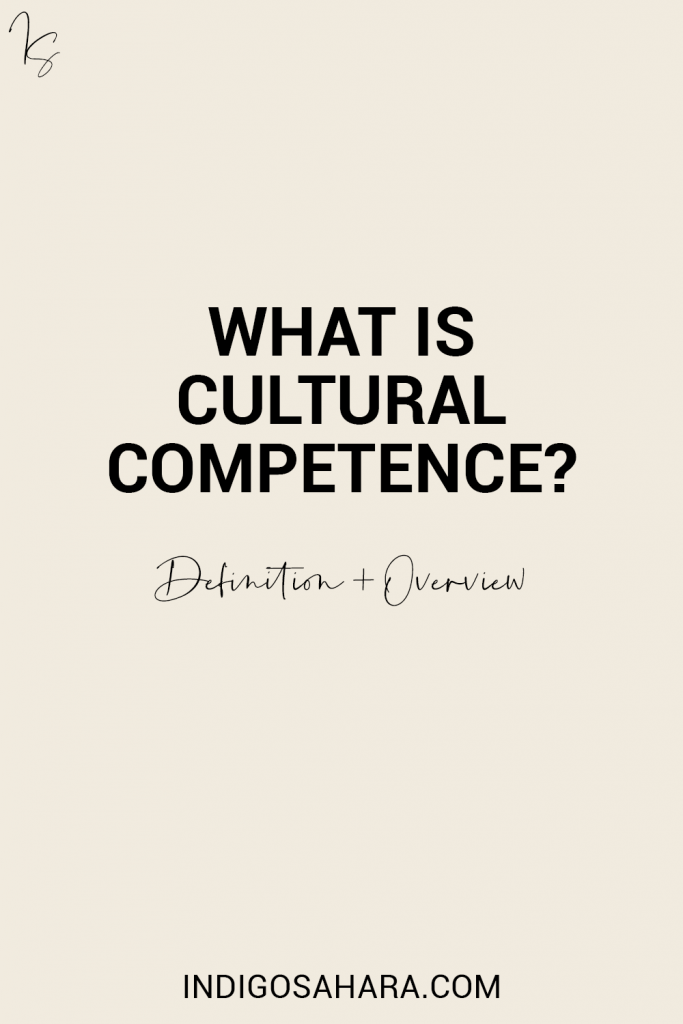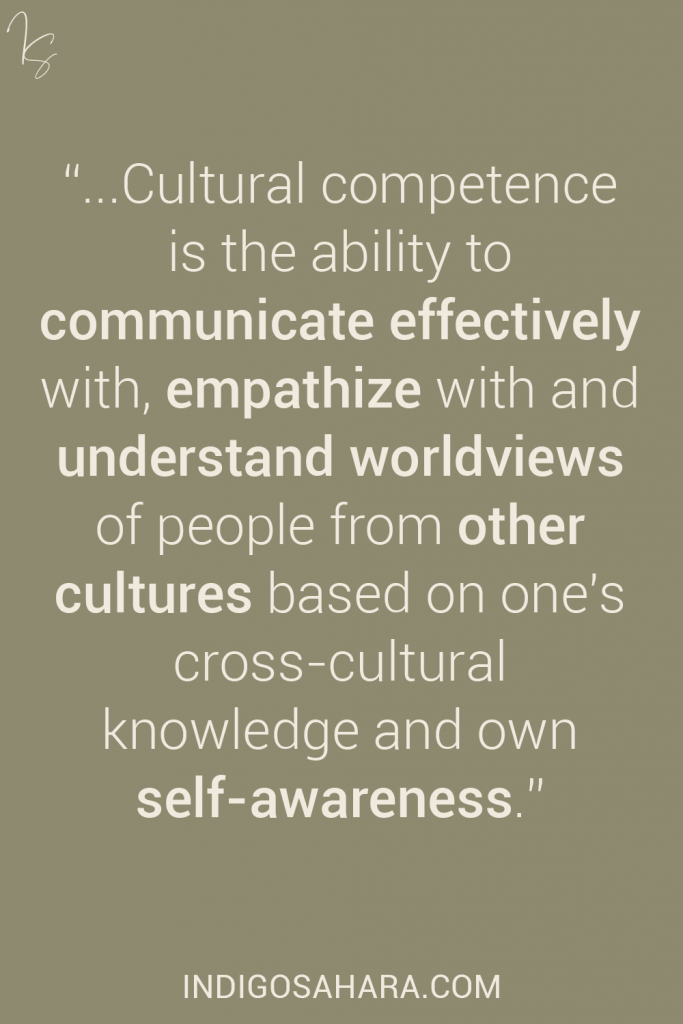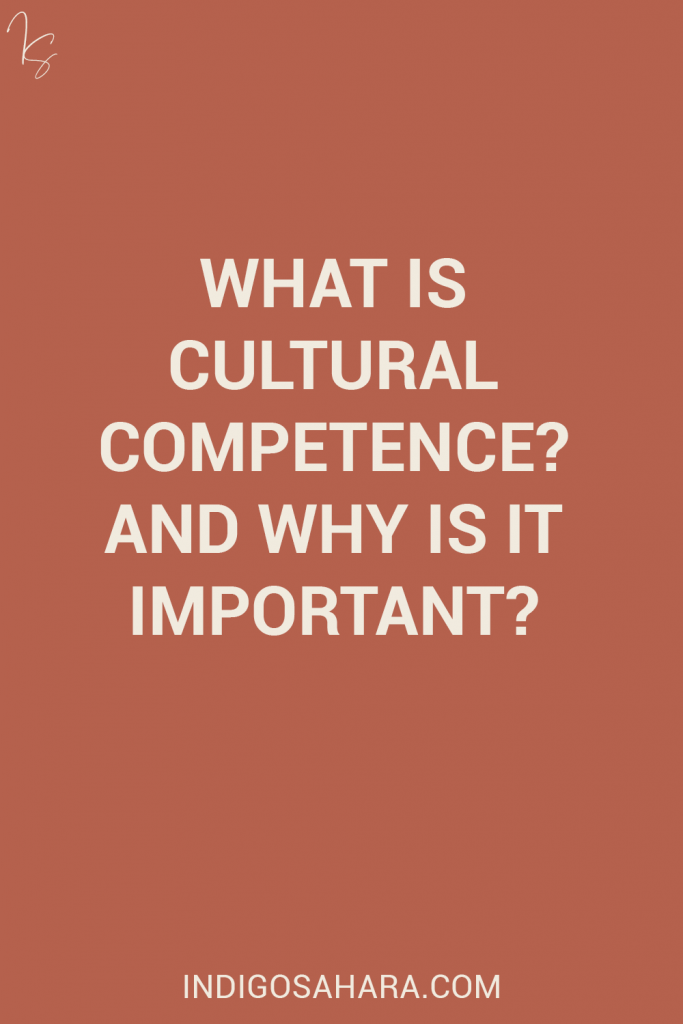
Cultural competence is a relatively new concept. Many academic fields, universities, non-profits and corporations tout the term, but what does it even mean? What is cultural competence?
In sum, cultural competence is the ability to communicate effectively with, empathize with and understand worldviews of people from other cultures based on one’s cross-cultural knowledge and own self-awareness.
Okay, that’s a mouth full. Let’s break it down.
Cultural competence is:
- The ability to communicate effectively with people from other cultures.
- The ability to empathize with people from other cultures.
- Understanding and accepting different worldviews.
- Being knowledgeable about other cultures.
- Being self-aware enough to differentiate your culture and respective worldview from other cultures and their respective worldviews.

Why Is Cultural Competence Important?
Apart from the beautiful desire to become accepting, understanding and empathic toward other cultures, cultural competence is actually important in the everyday workplace, travel destination and home life, too.
In a continually globalizing world, every one of us will encounter an individual from another culture at some point in our life — if not every single day of our life.
This has not always been the case. Long before internet, smartphones and social media, different cultures were separated by geography, government and language.
With modern technology and globally expanding corporate efforts, people need to communicate cross-culturally everyday, which is rarely an easy task. People are afraid of change, and cross-cultural communication solicits a lot of openness to change. This cognitive dissonance usually results in team tension, dispute and immobility.
How Do You Know If You’re Culturally Competent?
You will know that you are culturally competent when you:
- Can describe your own outlook on life in detail.
- Understand how your genes and environment affect this outlook.
- Are able to find many solutions to a single problem and don’t always rely on black-and-white thinking.
- Are aware that people process thoughts, emotions and experiences differently than you.
- Understand that the ways in which you think, behave, are persuaded, communicate and relate to others are predominantly results of your cultural upbringing.
- Aren’t afraid of opinions and beliefs that are different from your own.
- Have a positive attitude about people from other cultures.
- Consider yourself knowledgeable about, accepting of and compassionate toward people from other cultures.
- Are able to communicate effectively with people from other cultures, even with language barriers.
- Know and accept the differences between high and low context cultures, task and relationship orientation, individualism and collectivism, inductive and deductive reasoning, etc.
If you aren’t 100% sure if every one of these bullet points applies to you, then you probably have some more work to do. But, there is no need to be discouraged!
Cultural competence is a lifelong journey. It requires extra emotional, social and cognitive attention, and it is not something that can be learned overnight.
According to the National Center of Cultural Competence at Georgetown University (NCCC), there are six stages to cultural competence: cultural
- destructiveness,
- incapacity,
- blindness,
- pre-competence,
- competency and
- proficiency.
However, despite the lengthy learning, cultural competence can be learned.
Whether you’re a travel journalist like me, a third-world-country foreign aid worker or a first-world suburban homebody, this skill can indeed be acquired at any age.
Want To Learn More?
As an avid traveler who has studied cultural competencies extensively (MA in global leadership and pastoral counseling; BA in Spanish and journalism) as well as implemented them over the course of my entire life (read my story here), I love to help other people begin their journey toward cultural competence.
Here are some resources to give you a jumpstart:
- 5 Personal Benefits Of Cultural Competence
- How About We Stop Using The Term ‘Attention Seeker’?
- What Does The Bible Say About Face Covering? Contextualization In Ministry
- Erin Meyer’s Culture Mapping Tools
Also, subscribe to my email list to join a community of like-minded global citizens. You can always email me with specific questions and curiosities, too, at [email protected].


Did you find this post helpful? Save it to Pinterest by tapping on any photo above!







![Happy Earth Day & National Park Week! 🌲🌿⛰️🐻
[SAVE & SHARE]
Did you know the USA has some of the most otherworldly, diverse landscapes? Get out and explore them!!
I was once the girl who would say, “I’d rather go to Europe.” But, now, I can’t wait to get back in the national parks.
Here are 10 USA national parks that make you feel like you’re on another planet 🪐:
1. Arches National Park (Utah)
2. Badlands National Park (South Dakota)
3. Bryce Canyon National Park (Utah)
4. National Park (Utah)
5. Capitol Reef National Park (Utah)
6. Grand Canyon National Park (Arizona)
7. Great Sand Dunes National Park (Colorado)
8. Haleakala National Park (Hawaii)
9. White Sands National Park (New Mexico)
10. Zion National Park (Utah)
Have you checked any of these national parks off your bucket list yet?
#usatravel #usnationalparks #usanationalparks #nationalparkservice #nationalparkweek #earthday2024 #traveldestinations #placestosee](https://indigosahara.com/wp-content/plugins/instagram-feed/img/placeholder.png)
[…] an avid traveler who has lived abroad various times and actually studied both cultural competence and culture shock academically, it seems clear to me that we are very much experiencing this […]